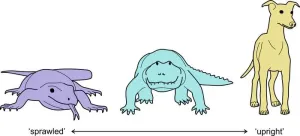(Press-News.org) DETROIT – A Wayne State University School of Medicine faculty member has been awarded a total of $2.3 million by the National Institute on Aging of the National institutes of Health for two new, concurrent projects that both address questions related to Alzheimer’s disease, a progressive, age-related degenerative brain disease characterized by memory problems, impaired judgment, cognitive issues and changes in personality.
Joongkyu Park, Ph.D., assistant professor of pharmacology and of neurology, is the principal investigator on “Local protein synthesis in tau pathology neurodegeneration,” a five-year, $1.9 million R01 research project that seeks to understand how tau pathology alters protein biogenesis in neuronal compartments. Brains with Alzheimer's disease, or AD, display the presence of increased protein accumulations, such as intracellular tau inclusions (neurofibrillary tangles) and extracellular beta-amyloid deposits (senile plaques). Dr. Park will test whether pathogenic forms of tau specifically interfere with dendritic protein synthesis and determine if the effect contributes to the pathologic features seen in Alzheimer’s disease.
The second grant, “Redirected CaMKII for restoring deficits in Alzheimer’s disease models,” is a two-year, $413,915 R21 exploratory/developmental project that aims to examine and understand how redirected calcium/calmodulin- dependent protein kinase II alpha improves neuronal dysfunctions and memory deficits in Alzheimer’s disease models.
“The most notable symptom is a significant cognitive impairment accompanying a substantial loss of dendritic spines and, eventually, neurons themselves. Since these end-stages are mostly irreversible, it is critical to identify appropriate molecular targets for intervention before the synaptic dysfunction and neuronal loss become permanent,” Dr. Park said.
Brains with AD display the presence of amyloid plaques and neurofibrillary tangles.
“However, alterations in synaptic structure, function and plasticity appear before these pathologies arise in various AD models, highlighting the pathological significance of early-stage synaptic alterations, potentially driven by AD-associated proteins, as a proximal event in AD etiology,” Dr. Park said. “Our lab focuses on local translation alteration (R01) and CaMKIIa mislocalization (R21) in the AD context. Using novel molecular approaches we developed recently, we will study how those mechanisms are altered in AD and how molecular understanding can be leveraged to mitigate or prevent pathologic features.”
The grants are based on previous work completed in the Park lab.
“I’m honored, humbled and excited to continue our research on synapse biology in the context of Alzheimer’s disease with these two new NIH grants,” he said.
“With Alzheimer’s disease on the rise, innovative research holds the key to unlocking hope and transforming care for millions affected,” said Ezemenari Obasi, Ph.D., vice president for research & innovation at Wayne State University. “These new NIH grants led by Dr. Park will provide an opportunity for important research to help develop new understandings of Alzheimer's disease and related dementias and possible therapeutic interventions that may one day change the lives of many.”
The grant numbers for these National Institute on Aging of the National Institutes of Health awards are R01AG089566 and R21AG083760.
# # #
About Wayne State University
Wayne State University is one of the nation’s pre-eminent public research universities in an urban setting. Through its multidisciplinary approach to research and education, and its ongoing collaboration with government, industry and other institutions, the university seeks to enhance economic growth and improve the quality of life in the city of Detroit, state of Michigan and throughout the world. For more information about research at Wayne State University, visit research.wayne.edu.
Wayne State University’s research efforts are dedicated to a prosperity agenda that betters the lives of our students, supports our faculty in pushing the boundaries of knowledge and innovation further, and strengthens the bonds that interconnect Wayne State and our community. To learn more about Wayne State University’s prosperity agenda, visit president.wayne.edu/prosperity-agenda.
END
Wayne State researcher secures two grants from the National Institute on Aging to address Alzheimer’s disease
2024-10-25
ELSE PRESS RELEASES FROM THIS DATE:
NFL’s Bears add lifesavers to the chain of survival in Chicago
2024-10-25
CHICAGO, October 22, 2024— The American Heart Association and the Chicago Bears brought cardiopulmonary resuscitation (CPR) and automated external defibrillator (AED) training to the Illinois High School Association (IHSA) Girls Flag Football State Finals on Saturday, Oct. 19. More than 150 youth athletes, coaches and league administrators learned lifesaving skills building their confidence and capabilities to respond in the event of a cardiac emergency. According to American Heart Association data, 9 out of every 10 people who experience cardiac arrest outside of a hospital die, in part ...
High-impact clinical trials generate promising results for improving kidney health: Part 1
2024-10-25
The results of numerous high-impact phase 3 clinical trials that could affect kidney-related medical care will be presented in-person at ASN Kidney Week 2024 October 23–27.
Finerenone—a selective non-steroidal mineralocorticoid receptor antagonist—has been shown to have kidney protective effects in individuals with chronic kidney disease (CKD) with type 2 diabetes, but its effects on kidney outcomes in patients with heart failure with and without diabetes and/or CKD are not known. To investigate, researchers analyzed data from 6,001 participants enrolled in the FINEARTS-HF trial, a global, randomized ...
Early, individualized recommendations for hospitalized patients with acute kidney injury
2024-10-25
About The Study: Among patients hospitalized with acute kidney injury, recommendations from a kidney action team did not significantly reduce the composite outcome of worsening acute kidney injury stage, dialysis, or mortality, despite a higher rate of recommendation implementation in the intervention group than in the usual care group.
Corresponding Author: To contact the corresponding author, F. Perry Wilson, MD, email francis.p.wilson@yale.edu.
To access the embargoed study: Visit our For The Media website at this link https://media.jamanetwork.com/
(doi:10.1001/jama.2024.22718)
Editor’s Note: Please see the article ...
How mammals got their stride
2024-10-25
Mammals, including humans, stand out with their distinctively upright posture, a key trait that fueled their spectacular evolutionary success. Yet, the earliest known ancestors of modern mammals more resembled reptiles, with limbs stuck out to their sides in a sprawled posture.
The shift from a sprawled stance, like that of lizards, to the upright posture of modern mammals, as in humans, dogs, and horses, marked a pivotal moment in evolution. It involved a major reorganization of limb ...
Cancer risk linked to p53 in ulcerative colitis
2024-10-25
Researchers in the lab of Michael Sigal at the Max Delbrück Center and Charité – Universitätsmedizin Berlin have elucidated the role of the p53 gene in ulcerative colitis. The study, published in Science Advances, suggests a potential new drug target to stop disease progression to cancer.
A team of researchers led by Kimberly Hartl, a graduate student at the Berlin Institute for Medical Systems Biology of the Max Delbrück Center (MDC-BIMSB) and Charité – Universitätsmedizin, have shed new light on the role of the p53 tumor suppressor gene ...
Mass General Brigham experts develop laboratory toolkit for patients with viral hemorrhagic fevers such as Marburg virus disease
2024-10-25
Viral hemorrhagic fevers (VHF) such as Marburg virus disease have been in the news recently, with more than 60 cases of Marburg confirmed in Rwanda. Although there are currently no cases of Marburg in the United States, and the risk of infection in the U.S. remains low, Mass General Brigham experts have collaborated with the U.S. Department of Health and Human Services (HHS) Region 1 Regional Emerging Special Pathogens Treatment Center (RESPTC) at the Massachusetts General Hospital (MGH) to support frontline healthcare facilities in ensuring that patients who are being evaluated ...
Ripples of colonialism: Decarbonization strategies perpetuate inequalities in human rights
2024-10-25
Photos
A University of Michigan study of a city in the Democratic Republic of Congo finds that the necessary process of decarbonization is repeating and recreating colonial inequalities.
The researchers argue that human rights abuses associated with contemporary cobalt mining, such as child labor, social displacement and structural marginalization, are new forms of old colonial practices. Their study is published in the journal Cities.
"We show how those colonial practices emerged through the creation of mining companies and through ...
Christine Schmidt elected to prestigious National Academy of Medicine
2024-10-25
University of Florida Distinguished Professor Christine Schmidt has been elected to the National Academy of Medicine. This prestigious honor follows her election earlier this year to the National Academy of Engineering, making her one of the few exceptional individuals to be recognized by both academies.
Election to the National Academy of Medicine recognizes outstanding professional achievement and commitment to service in the fields of health and medicine. The Academy announced the names of its 100 new members today during its annual meeting in Washington, D.C.
Schmidt, the Pruitt Family Endowed Chair in the J. Crayton Pruitt Family Department of Biomedical Engineering, was selected ...
Move along moose, SFU study reveals the ‘most Canadian’ animals
2024-10-25
What is the “most Canadian” animal? Spoiler: it’s not the beaver, or the moose.
Published today in the journal The Canadian Field-Naturalist, the study from a team of Simon Fraser University researchers ranks, for the first time ever, species of terrestrial vertebrates in Canada by their level of Canadian evolutionary distinctness: the amount of time animals have evolved independently from other Canadian species.
High ranked species have no close national relatives and can embody up to a hundred million years of evolution shared with none other in the country.
The study found that, overall, amphibians ...
Diabetes drug Ozempic also has positive effect in chronic kidney disease and obesity
2024-10-25
This was shown in an international study led by clinical pharmacologist Hiddo L. Heerspink of the University Medical Center Groningen in the Netherlands. This is the first time that it has been shown that this diabetes drug, now best known as a means of losing weight, is also effective for patients with chronic kidney damage. The results of this study have been published in Nature Medicine and presented simultaneously at the annual congress of the American Society of Nephrology.
Does a diabetesdrug also work in chronic ...


